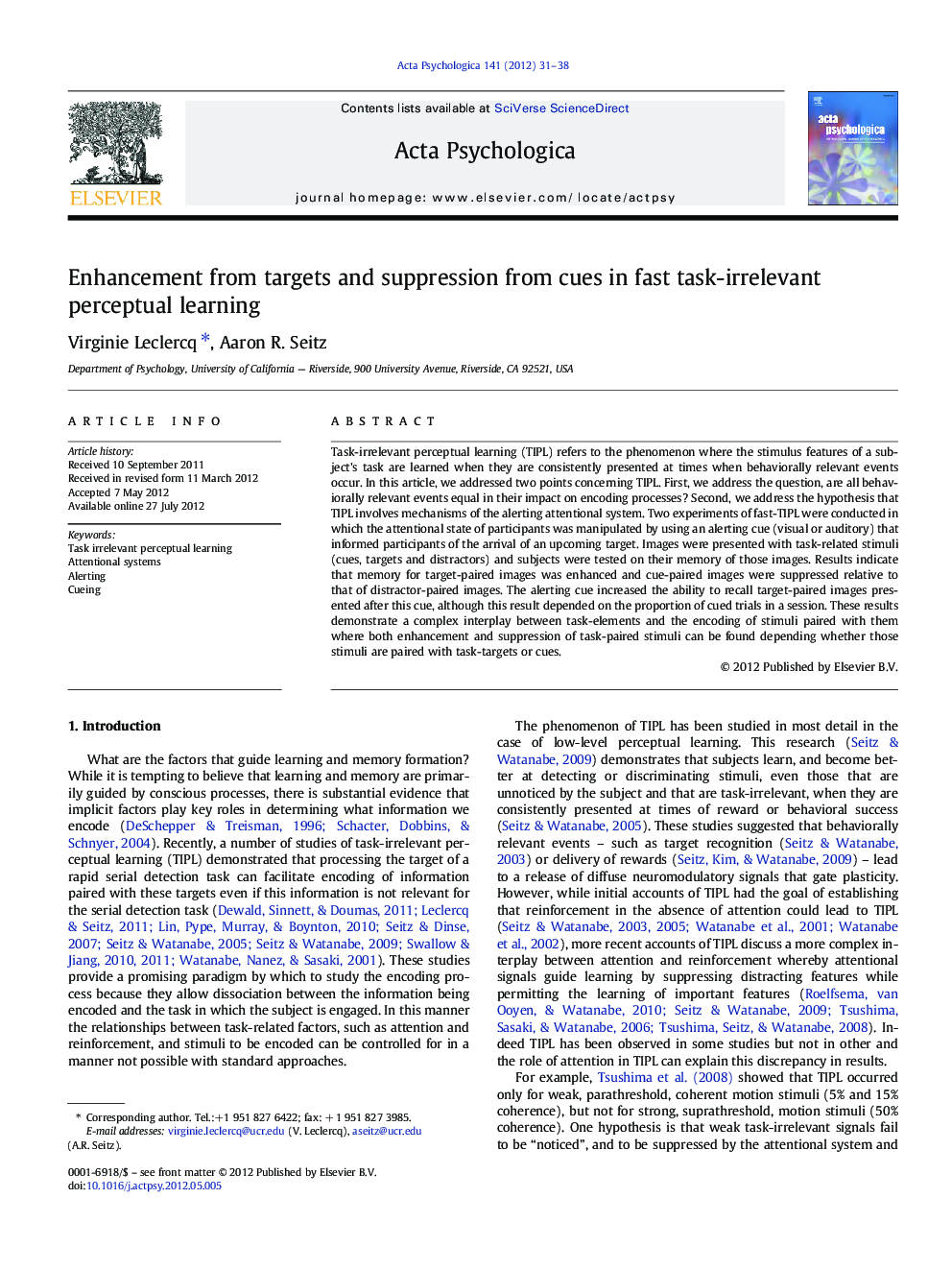| Article ID | Journal | Published Year | Pages | File Type |
|---|---|---|---|---|
| 10453821 | Acta Psychologica | 2012 | 8 Pages |
Abstract
Task-irrelevant perceptual learning (TIPL) refers to the phenomenon where the stimulus features of a subject's task are learned when they are consistently presented at times when behaviorally relevant events occur. In this article, we addressed two points concerning TIPL. First, we address the question, are all behaviorally relevant events equal in their impact on encoding processes? Second, we address the hypothesis that TIPL involves mechanisms of the alerting attentional system. Two experiments of fast-TIPL were conducted in which the attentional state of participants was manipulated by using an alerting cue (visual or auditory) that informed participants of the arrival of an upcoming target. Images were presented with task-related stimuli (cues, targets and distractors) and subjects were tested on their memory of those images. Results indicate that memory for target-paired images was enhanced and cue-paired images were suppressed relative to that of distractor-paired images. The alerting cue increased the ability to recall target-paired images presented after this cue, although this result depended on the proportion of cued trials in a session. These results demonstrate a complex interplay between task-elements and the encoding of stimuli paired with them where both enhancement and suppression of task-paired stimuli can be found depending whether those stimuli are paired with task-targets or cues.
Related Topics
Life Sciences
Neuroscience
Cognitive Neuroscience
Authors
Virginie Leclercq, Aaron R. Seitz,
